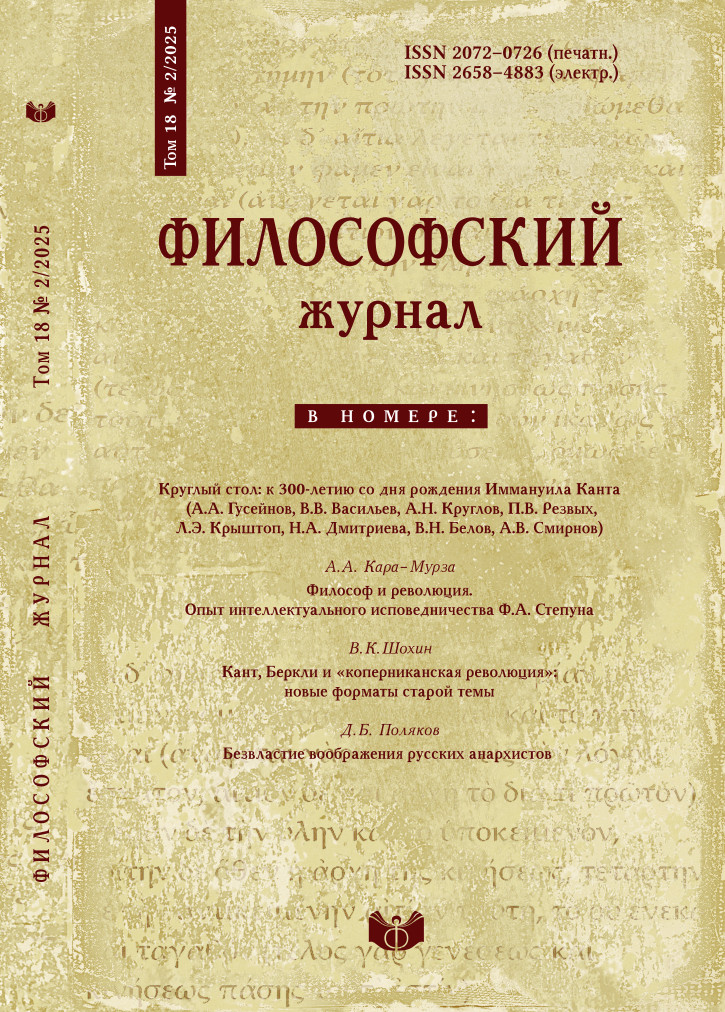Kant forever
DOI:
https://doi.org/10.21146/2072-0726-2025-18-2-5-14Keywords:
Kant, Kantian studies, the subject of philosophy, ethics and theory of knowledgeAbstract
As shown by the celebration of Kant’s 300th anniversary, as well as the final conference held by the Institute of Philosophy of the Russian Academy of Sciences and four philosophical faculties (institutes) of Moscow universities, Kant in our country is perceived by specialists and society as a whole as an undoubted authority and classic of philosophy. He entered our culture as a thinker who teaches us to obey reason and follow the free voice of our own liberated conscience, which has become the result of a long-term work on the reception of the philosopher’s legacy, particularly intensive over the past fifty years. This work has reached a new quality, but has not been completed, and Kant remains the subject of lively modern discussions. It is stressed that our perception of Kant is marked by a strong ethical bias, expressed not in the fact that his moral teaching is exaggerated, but in the fact that it is torn out of his entire philosophical system. Emphasizing the systemic integrity of Kant’s philosophy is one of the urgent challenges that go beyond the narrow scope of Kantian studies. Modern philosophy, considered as a whole, has been divided into parts that exist as professionally splitting independent sciences. The second Kantian critique, in its detailed and precise meaning, is a critique of pure practical reason. And Kant himself primarily uses this full designation in the text. This connection between the two critiques, the understanding of the second as a direct continuation and conclusion of the first, is poorly emphasized in general studies of Kant’s philosophy in Russia and practically disappears in special studies of his ethics. Being separated from the epistemological basis, the moral law hangs in the air: on the one hand, the connection with the noumenal world of freedom as its foundation is lost, and on the other hand, the channels connecting goodwill with the practical will of empirical individuals are blocked. Thus, the idea of the primacy of practical reason, which forms the inner nerve of Kant’s philosophy, is deprived of real content, and ethics is inevitably doomed to moralizing, which is, in fact, completely alien to Kant himself. In answering the second question of the discussion, attention is drawn to the need for further research on how the concepts of the transcendental subject and empirical subjects relate to the living experience of cognition and human behavior.






